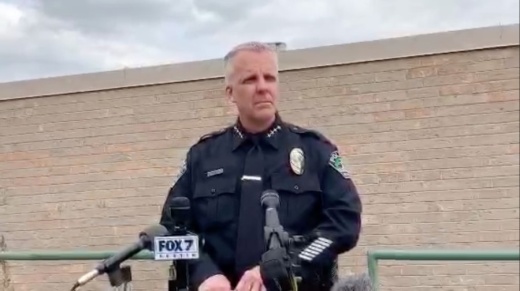At least five City Council members have called for Manley to resign from his position following heightened scrutiny over the department's tactics against protesters in recent weeks. Amid commitments to reimagine policing in Austin, the mayor and all 10 City Council members signed off on a resolution June 11 that said they had "no confidence" in the police department's leadership to implement the necessary changes. Activist groups and Austinites have also called for Manley's removal. Cronk, however, maintained his confidence that Manley is the right person for the job.
"I have had very pointed conversations with Chief Manley over the last several weeks," Cronk said in a statement. "He has assured me he is sincerely committed to making the reforms necessary.”
Chas Moore, executive director of the local activist organization Austin Justice Coalition, which has called for Manley's ouster, said Cronk's decision is "very disappointing."
"I don't agree with Cronk that Manley is a guy that can lead this police department in the direction that policing needs to go," Moore said. "I just don't think he has that skill set or that vision or that mindset. It's unfortunate that Cronk feels that way."
District 6 City Council Member Jimmy Flannigan, who has called for Manley to step down, said he expects Cronk to listen to City Council.
"Council has made its perspective clear and expects the city manager to respect the will of the council," Flannigan said.
District 4 City Council Greg Casar, who has also called for Manley to resign, said the community should explore changes to the city's charter to allow for more "democratic control" over decisions on policing.
"The manager has emphasized he is making these decisions day-to-day and everyone is under review every day," Casar said. "The community should continue to advocate for transformational policing. I've said that I think that will be harder to do with the current leadership, but I am committed to doing it either way."





